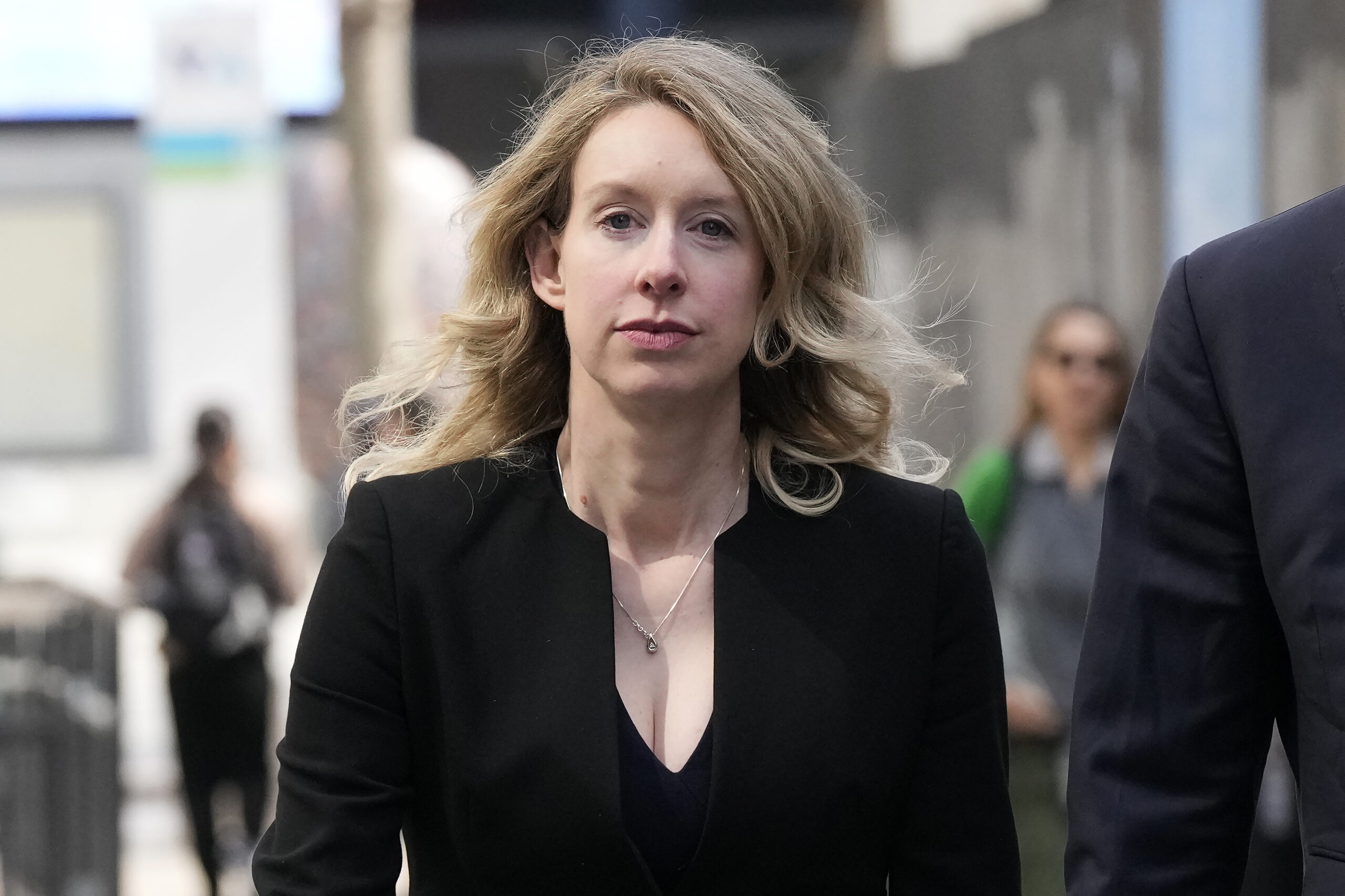
Former Theranos CEO Elizabeth Holmes leaves federal court in San Jose, Calif. on March 17, 2023. (AP)
Theranos founder Elizabeth Holmes shouldn't be able to delay her prison sentence because she's unlikely to prevail in her appeals, a federal judge ruled late on Monday.
As a result of the ruling, the woman once declared the youngest and wealthiest self-made billionaire by Forbes loses her last chance to avoid incarceration for her massive fraud. Her company Theranos claimed to have revolutionized blood testing, through a patented so-called nanotainer that only required a pinprick to function. The invention never worked, but Holmes persuaded patients and investors that it did, netting her company a $9 billion valuation at its height.
In July 2018, a grand jury indicted Holmes and her former chief operating officer and ex-boyfriend Ramesh "Sunny" Balwani, charging that it was all a massive fraud. Both now stand convicted.
Attorneys for Holmes argued that their client should be able to wait out her appeals as a free woman. To prevail, they had to prove that Holmes was not a risk of flight or a danger to the community — and she had a substantial appeal ahead of her.
Prosecutors opposed release, revealing that they discovered Holmes had booked a one-way ticket to Mexico in January 2023, just weeks after her convictions.
"Only after the government raised this unauthorized flight with defense counsel was the trip canceled," prosecutors added.
Holmes's attorneys chalked it up to a misunderstanding, claiming that their client wanted to attend a close friend's wedding south of the border. The Theranos founder hoped and expected she would have been acquitted by then.
"Given the verdict, she does not plan to take the trip — and therefore did not provide notice, seek permission, or request access to her passport (which the government has) for the trip," her attorney Lance Wade said.
On Monday, U.S. District Judge Edward J. Davila found the excuse plausible, ruling that Holmes was neither a flight risk nor a danger to the community.
"Booking international travel plans for a criminal defendant in anticipation of a complete defense victory is a bold move, and the failure to promptly cancel those plans after a guilty verdict is a perilously careless oversight," Davila wrote in an 11-page order. "Certainly, this incident has invited greater scrutiny of Ms. Holmes's personal affairs and further speculation into her motivations. However, after reviewing the counsels' contemporary communications and immediate subsequent remediation, the Court accepts Ms. Holmes's representation that the one-way flight ticket—while ill-advised—was not an attempt to flee the country."
Nor, he found, was Holmes a danger to the community.
"Ms. Holmes was convicted of non-violent—though nonetheless serious—crimes that primarily had the impact they did by virtue of her influence and position at Theranos," the order states. "Today, Ms. Holmes is in no position to inflict similar harms of fraud on the community, and the Court is unaware of any evidence that she is likely to commit acts of deception or fraud in her everyday life."
However, Davila found, Holmes doesn't stand much of a shot before the Ninth Circuit Court of Appeals.
"Even though Ms. Holmes had presented clear and convincing evidence that she would not flee, the Court does not find that she has raised a 'substantial question of law or fact' that is 'likely to result in reversal or an order for a new trial of all counts,'" the judge concluded.
Holmes is expected to surrender to prison on April 27 at 2 p.m. PT. Her attorney did not immediately respond to an email requesting comment.
Read the order here.
Comments